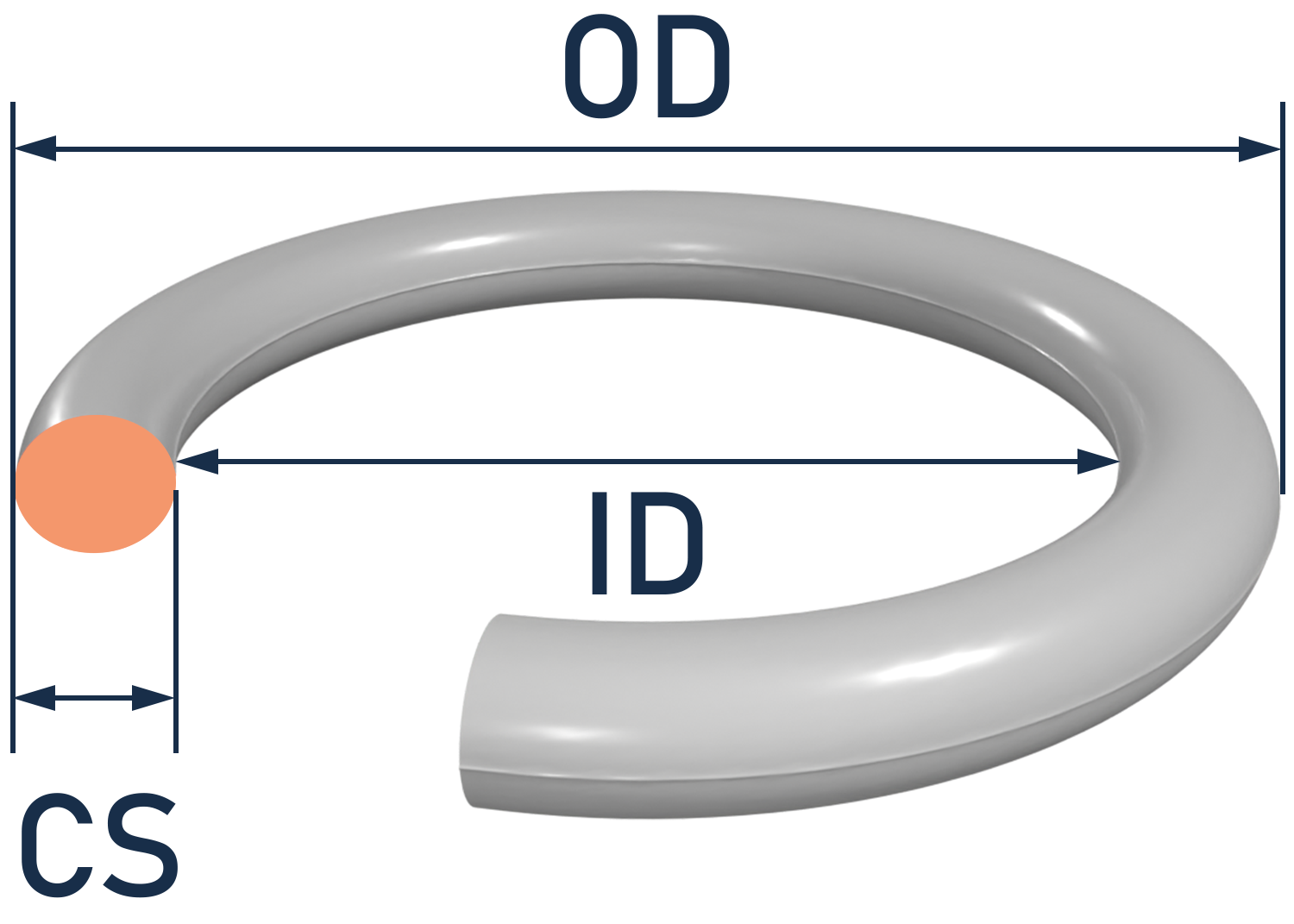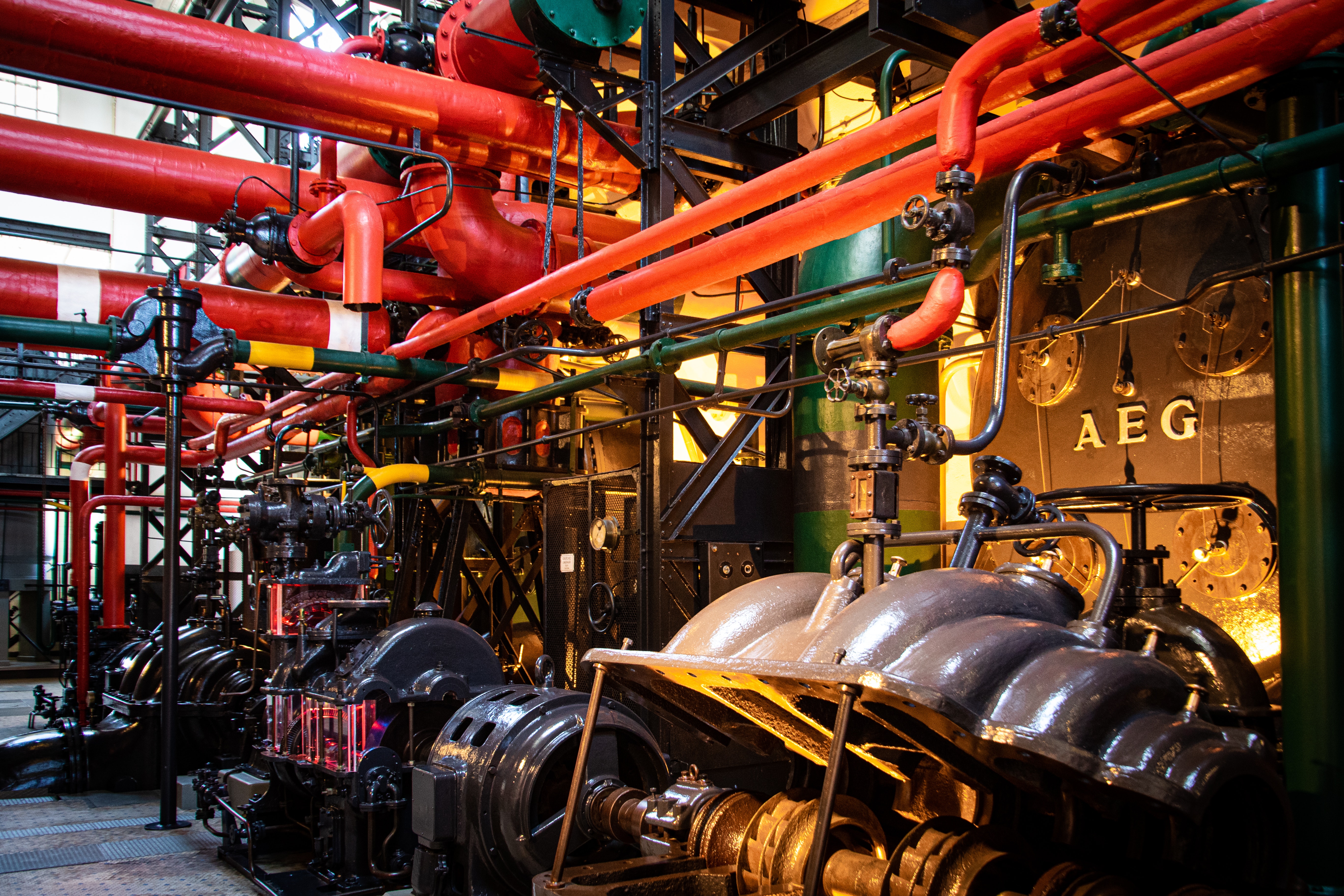
Nuclear Grade O-ring Materials
Nuclear grade elastomers and plastics are specially engineered materials designed to meet the stringent demands of nuclear power plants, research facilities, and other radiation-exposed environments. These materials are formulated to withstand extreme temperatures, high radiation levels, and harsh chemical exposure while maintaining long-term performance and integrity. Purity is a critical factor for nuclear-grade materials, ensuring that unwanted metals and elements that could compromise safety or performance are strictly controlled. Compliance with industry standards such as EN 14582 (total halogen and sulfur content) and EPA 3052 (acid digestion for trace metal analysis) guarantees the material's suitability for nuclear environments. These materials are often used to manufacture O-rings, gaskets, and custom elastomeric or plastic parts.
Check with one of Canyon’s helpful product engineers for an expert material and manufacturing recommendation.

Features of Nuclear Grade Materials
- Radiation Resistance – Nuclear-grade elastomers and plastics are designed to withstand high levels of gamma and neutron radiation without degradation, embrittlement, or loss of elasticity.
- Purity and Material Control – These O-rings, gaskets, and custom elastomeric or plastic parts are highly purified to eliminate contaminants, including unwanted metals and halogens, which could create reactive byproducts or corrosion under radiation exposure. Purity testing adheres to EN 14582 and EPA 3052 standards.
- Thermal Stability – Nuclear environments often involve extreme heat. Nuclear-grade O-rings, gaskets, and custom elastomeric or plastic parts are formulated to maintain their mechanical properties across a wide temperature range, from cryogenic levels to high heat.
- Chemical Resistance – Resistant to exposure from coolants, cleaning agents, and radiation byproducts, nuclear-grade materials provide reliable sealing and structural integrity even under prolonged chemical exposure.
- Low Outgassing – O-rings, gaskets, and custom elastomeric or plastic parts used in nuclear applications are designed to minimize outgassing, which can introduce contaminants into sensitive environments or create safety hazards.
- Traceability and Quality Assurance – Strict documentation and material testing ensure consistency, reliability, and adherence to nuclear industry standards.
Common Applications of Nuclear Grade Materials
O-rings, Seals, and Gaskets
- Used in reactor coolant systems, steam generators, and pressurized vessels
- Provide reliable sealing under high pressure and radiation exposure
Containment and Shielding Components
- Elastomers and plastics used in radiation shielding and containment barriers
- Maintain structural integrity under prolonged radiation and heat
Valve Seats and Diaphragms
- Provide leak-free operation in valves used for controlling fluids and gases in nuclear plants
Pumps and Compressors
- Sealing elements and structural components resistant to chemicals, radiation, and thermal stress
Electrical Insulation
- Plastics used in cable coatings and connectors within nuclear reactors and radiation-exposed zones
Fluid Handling Systems
- Hoses, seals, and tubing used for handling radioactive or corrosive fluids
Nuclear Grade EPDM Materials Available
This table shows many of our standard materials and links out to our O-ring store. Get in touch with us if you need a custom gasket, custom molded part, or non-standard geometry!
Filter by
Temperature Search (°C)

Please consult a Canyon Components Engineer about your specific application and we will use our decades of experience to formulate a solution that fits your need.
Nuclear Grade Materials Pros & Cons
In nuclear environments, even trace amounts of certain metals and contaminants can cause significant issues, including corrosion, chemical instability, and radiation-induced degradation. Nuclear-grade O-rings, gaskets, and custom elastomeric or plastic parts are manufactured and tested to strict purity standards to minimize these risks. Compliance with EN 14582 ensures low halogen and sulfur content, while EPA 3052 testing confirms the absence of harmful trace metals. This attention to material purity ensures that nuclear-grade components maintain their mechanical and chemical integrity under the harshest conditions.
Nuclear-grade elastomers and plastics offer unparalleled performance in high-stress environments, including radiation, extreme temperatures, and chemical exposure. Their enhanced purity, mechanical strength, and chemical resistance make them ideal for demanding nuclear applications. With strict adherence to industry standards like EN 14582 and EPA 3052, these materials provide the reliability and durability needed for long-term success in nuclear facilities.
Canyon Components strives to meet all customer service requests. Feel free to contact Canyon Components engineering and let our knowledgeable staff help you design the perfect part for your needs.
Pros of Nuclear Grade Materials
- Superior Radiation Resistance – Nuclear-grade materials retain their properties even after long-term exposure to high levels of gamma and neutron radiation.
- High Purity – Eliminating unwanted metals and halogens ensures that the material will not degrade or create reactive byproducts under radiation exposure.
- Wide Temperature Range – These materials maintain flexibility and strength in both cryogenic and high-temperature environments.
- Excellent Chemical Resistance – Resistant to coolants, solvents, and radioactive byproducts, making them suitable for direct contact with reactor fluids.
- Strict Quality Control – Materials are manufactured and tested to comply with EN 14582 and EPA 3052 for trace elements and halogen content.
- Low Outgassing – Reduces the risk of contamination in sensitive reactor environments.
Cons of Nuclear Grade Materials
- Higher Cost – The high level of material purity and precision manufacturing increases production costs.
- Limited Availability – Nuclear-grade materials are manufactured under strict controls, limiting availability and production speed.
- Design Limitations – High-purity materials may have more restricted processing options or may require specialized molding or machining techniques.
- Compatibility Challenges – Not all nuclear-grade materials are compatible with all coolants or chemical exposures, requiring material selection based on specific operating conditions.
Please consult a Canyon Components Engineer about your specific application and we will use our decades of experience to formulate a solution that fits your need.
Back to Industries Hub

Get A Quote Now!

